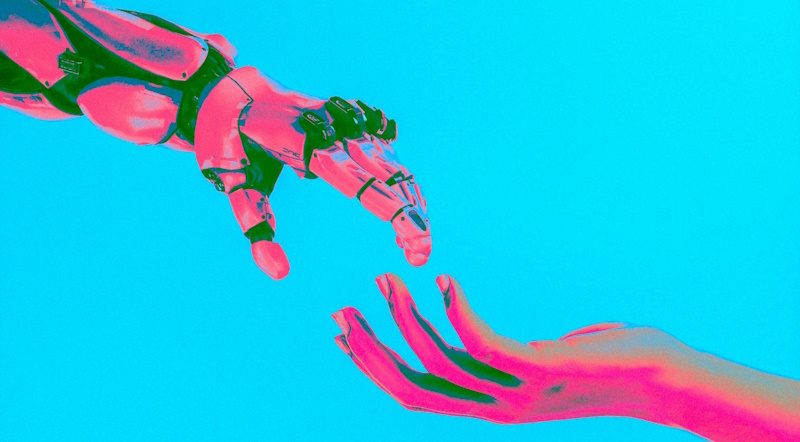The music industry Vs AI music generators Udio & Suno
Image credit: Cash Macanaya
As tensions heat up between creators and the progression of AI technology, the industry is taking the two big AI music companies to task.
The world of AI music generation is facing a potentially huge disruption. Industry giants, the Recording Industry Association of America (RIAA), are striking out at two prominent AI music startups: Suno and Udio.
The RIAA represents major record labels like Sony Music, Universal Music Group, and Warner Records. They accuse Suno and Udio of training their AI models on a vast library of copyrighted music without obtaining proper licenses. They argue that this training process constitutes copyright infringement.
The RIAA have pointed to music generated by Suno that bears a “strong resemblance” to copyrighted recordings. They provide some examples in the tweet shared below:
Name that tune 🎶!
— RIAA (@RIAA) June 24, 2024
Sound familiar? That’s because @suno_ai_ is training AI on copyrighted works…
🎧: https://t.co/GnRxCA0rDc
🎧: https://t.co/lr3Z7tHmyB
🎧: https://t.co/zXjPi68lJF
Learn more about our legal action against Suno: https://t.co/LOFOSrRp9M pic.twitter.com/OmF7iUqAd7
Suno & Udio deny wrongdoing
Both Suno and Udio have refuted the allegations. Suno CEO Mikey Shulman emphasises their technology’s transformative nature, claiming that it’s purpose is “to generate completely new outputs, not to memorise and regurgitate pre-existing content”. He adds: “That is why we don’t allow user prompts that reference specific artists.
“We would have been happy to explain this to the corporate record labels that filed this lawsuit (and in fact, we tried to do so), but instead of entertaining a good faith discussion, they’ve reverted to their old lawyer-led playbook. Suno is built for new music, new uses, and new musicians. We prize originality.”
However, the RIAA responded to Shulman’s comments and his lack of acknowledgement over the question of training their AI on copyrighted content. The RIAA wrote: “Suno continues to dodge the basic question: What sound recordings have they illegally copied?”
The crux of the issue
Whilst many in the music industry argue that it is wrong – not just morally but legally – to use copyrighted content without permission to train your generative models, many in the AI community argue that it should come under fair use. Shulmans remarks on the information being used to create “transformative” content matches the thoughts behind many in tech.
Fair use in copyright law allows for limited use of copyrighted material for purposes such as commentary, criticism, or education. Suno and Udio might argue their AI training falls under this category, as it ultimately creates new musical pieces. However, the RIAA contends that the sheer scale of copyrighted material allegedly used goes beyond permissible fair use.
The outcome of this lawsuit will go some way to establishing a precedent in the freshly challenging landscape of AI and art. If the RIAA prevails, it would establish a precedent requiring AI companies to obtain licenses before training their models on copyrighted music. This could significantly impact the development and accessibility of AI music generation tools.
Conversely, a Suno and Udio victory would legitimise using copyrighted material for AI training, potentially accelerating advancements in this field. However, it seems that the legal question hasn’t dissuaded many AI startups so far.
Can artists and AI work together?
Despite the current discord, there is potential for a harmonious future. The music industry isn’t entirely averse to AI. Collaborations exist between rightsholders and AI developers focused on responsible and ethical use of this technology. Ideally, the legal wrangling can pave the way for a more collaborative environment where AI complements and expands human creativity in music production.
AI tools are being developed to enhance artist’s creativity rather than take them away. For example, we recently covered a website which had legally trained its AI on royalty-free audio to produce samples that artists can use in their music. Music production software has been introducing AI in various ways to increase productivity, like Apple’s updates to Logic Pro which include digital session musicians who play along to your music.
On the listener side of things, music streaming services are enhancing music discovery and playlist creation with AI. Spotify have been expanding the use of their AI DJ around the world to great success.
One thing is certain: This lawsuit has ignited a crucial conversation about the role of AI in music creation, with significant implications for both the technological and artistic landscapes.
